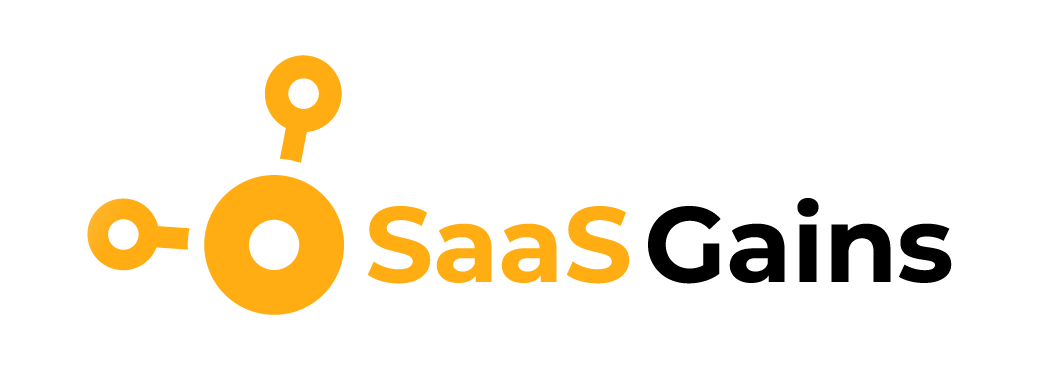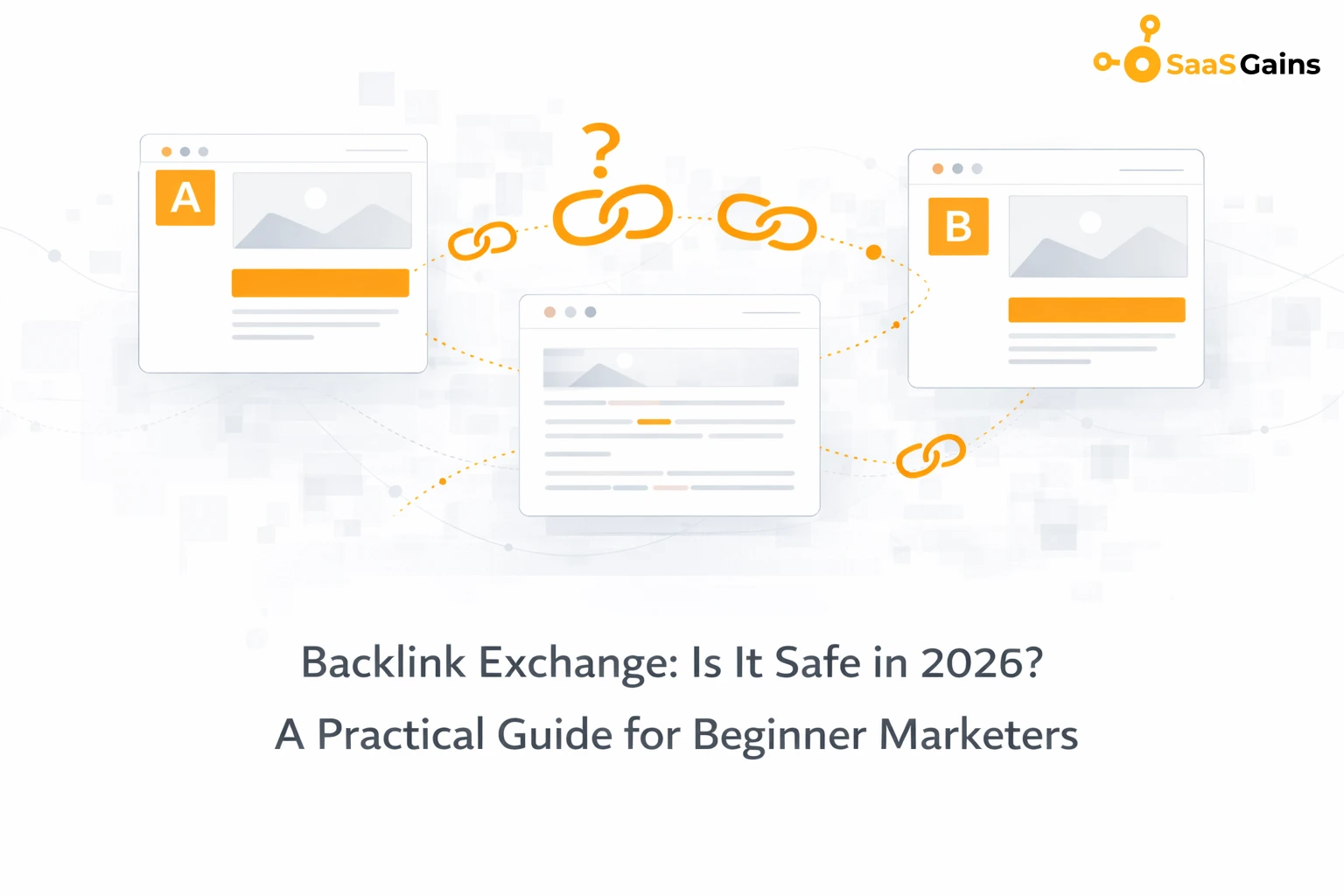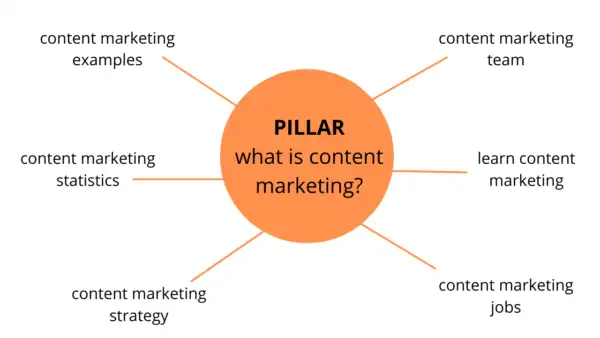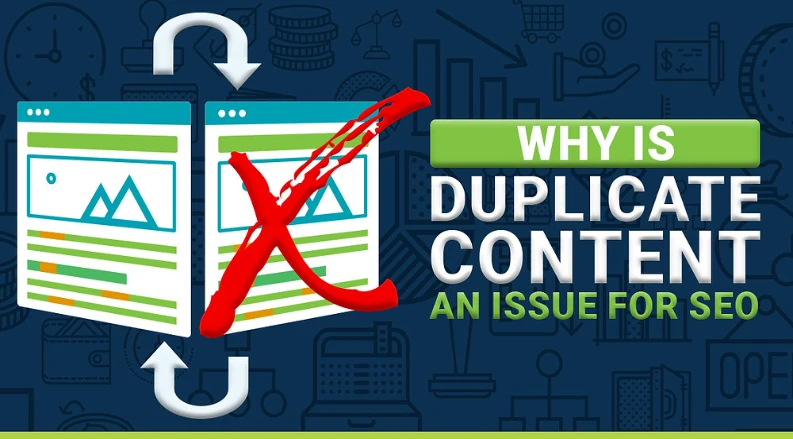A random piece of content is useless without the use of proper keywords. These terms are the actual words that people search to solve their query. But how can you come to know which phrases people are searching most in the search engines?
Effective SaaS keyword research is the best method to know these keywords.
If you want to know how to do proper keyword research, this article is for you. Let’s start reading for better understanding.
What is SaaS Keyword Research?

SaaS keyword research is the process of finding terms or phrases that people usually type into search engines when they need software like yours. While searching, they may have different queries in their mind, such as,
- Best CRM software for small businesses
- Affordable time tracking tools for remote teams
- Email marketing software with automation
- How to manage customer support online
- Top SaaS tools for project collaboration
These keywords help to understand what your target audience is searching for, so you can make content that shows up in the search engine.
What is the purpose of SaaS keyword research?
| Purpose | Explanation |
| Understand User Intent | Helps you learn what your potential customers are searching for online. |
| Attract Targeted Traffic | Brings in visitors who are genuinely interested in your SaaS product. |
| Improve Search Visibility | Increases your chances of ranking higher on search engines like Google. |
| Support Content Planning | Guides you in creating blogs, landing pages, and resources that meet user needs. |
| Boost Conversions | Connects you with people ready to try or buy your software. |
7-Step SaaS Keyword Research Process
1. Define Your SaaS Goals and Audience
Understanding the goals of your SaaS product is crucial before you begin keyword research. Do you want to increase traffic to a particular feature page, increase sign-ups, or raise brand awareness? Prioritize setting specific goals.
After that, determine who your ideal users are. Are they developers, marketers, small business proprietors, or corporate teams? Understanding your target market enables you to think like them.
- What challenges do they face every day?
- And what answers do they seek?
2. List Core Features and Use Cases
Write down the main features of your SaaS product. What does it help people do? For instance, if you sell software for team collaboration, some of your features may be file sharing, task management, and chat. Next, consider real-world applications for your product.
Moreover, use cases include things like “organizing projects” and “managing remote teams.” These suggestions aid in the development of practical keywords. List all the things your tool can help with because people frequently search for problems they wish to address rather than just product names.
3. Brainstorm Seed Keywords
Simple terms or phrases associated with your product are known as seed keywords. These are where your keyword research should begin. Consider what a person searching for a tool similar to yours could type into Google.
For instance, if you sell email marketing software, “email campaigns,” “newsletter tool,” or “automated emails” could be seed keywords. Start with ten to twenty fundamental keywords. Don’t stress over perfection; all you need is a list to work from. In the following stage, these seed keywords will assist you in finding additional keyword suggestions.
4. Analyze Competitors’ Keywords
Examine what your rivals are doing. Look for businesses that sell comparable goods and find out what keywords they rank for. To obtain this data, you can utilize programs like SEMrush, Ahrefs, or Ubersuggest. This helps you think of keywords you may have overlooked.
Additionally, you may view their product pages, blogs, and assistance manuals.
- What are they writing about?
- What inquiries are they addressing?
Finding clever ways to reach the same audience, possibly with even better content, is made easier when you learn from your competitor.
5. Expand with Keyword Tools
It’s time to expand your collection of keywords. Make use of keyword research tools such as SEMrush, Ubersuggest, and Google Keyword Planner. Enter your seed keywords and observe the results. More keyword ideas, their monthly search volume, and their level of competition will all be displayed by these tools.
Pro Tip: Try to find keywords that have good search volume but aren’t too hard to rank for.
6. Group Keywords by Intent and Funnel Stage
Not all keywords mean the same thing. Some people are just learning, while others are ready to buy. So, group your keywords by what the searcher wants:
- Informational: looking for knowledge (e.g., “what is a CRM?”)
- Comparative: comparing tools (e.g., “best CRM for small business”)
- Transactional: ready to buy (e.g., “buy CRM software”)
7. Prioritize and Finalize Target Keywords
It’s time to select the top items from your lengthy list. Choose keywords that are not very competitive, have a high volume of searches, and correspond with your product. Prioritize quality over quantity. It is preferable to target a small number of keywords that generate relevant traffic rather than a large number of non-converting keywords.
Effective SaaS Keyword Research Strategies

Listed below are some strategies that help with effective SaaS keyword research.
Pain Point-Focused Keyword Discovery
This strategy begins with a straightforward query: What issues does the application resolve? Consider the difficulties your ideal client encounters daily. If your SaaS application facilitates remote teams, for instance, search for terms like
- Remote team communication issues
- How to track remote projects
- Collaboration problems
Look for authentic user language on social media, forums, and customer reviews. To view search volume and competition, enter these pain points into keyword tools.
Competitor Keyword Gap Analysis
Are you looking for keyword chances that your rivals have overlooked? A keyword gap analysis might be useful. Here’s how to accomplish it:
- Determine your main SaaS competitors.
- Look for keywords that you don’t target, but they do.
- Look for low-ranking keywords that they aren’t doing a good job of optimizing.
These gaps let you know where you can make an impression. Look for content ideas by examining their best-performing pages.
Use Case-Based Keyword Targeting
People often search for solutions based on their industry or role. Use case keywords help you show up in those searches. Instead of targeting general terms, go for some specific terms like:
- CRM for small law firms
- Project management tool for construction
- Inventory software for restaurants
Start by listing all the sectors and functions that your product fulfills. Next, find out how each group could look for your answer.
Long-Tail Keyword Expansion
Long-tail keywords are detailed phrases people use when they’re close to making a decision.
Example:
- Instead of “email marketing,” use “best email marketing tool for startups.”
To find them:
- Use tools like AnswerThePublic, Ubersuggest, or Google’s autocomplete.
- Check forums and FAQs to understand how people ask questions.
SaaS-Specific SERP Analysis
Examine the content that is currently ranking before producing fresh content. This reveals what users and Google want.
Actions to take:
- Look up your desired term.
- Examine the top ten outcomes. Are they product sites, movies, or blog entries?
- Keep an eye out for additional features such as linked searches, “People also ask,” or featured snippets.
- Examine the organization of the content and the writing of the headlines.
Make use of this data to align the format of your content with what scores highly. You can produce content that meets user expectations and outperforms rivals with the aid of SERP research.
Keyword Clustering for Topic Authority

Keyword clustering means grouping similar keywords into themes or topics.
Example cluster:
- Main topic: “email automation”
- Subtopics: “automated email workflows,” “email drip campaigns,” “email scheduling tools”
Steps involved in keyword clustering:
- Group related keywords from your list.
- Create one main pillar page for the broad topic.
- Write supporting blog posts or subpages linked to the pillar.
Final Thoughts
There is no doubt that effective keyword research is the foundation of SaaS SEO strategy. To get success, there is no solution that works overnight. This is a consistent strategy that grows over time. With the right keywords, SaaS companies can attract potential customers and convert them into paying leads.
The most effective strategy is the analysis of competitors. Make sure to target high-volume and competitive keywords that people enter most in the search engines. Apply these strategies, and then your content will boom!
Frequently Asked Questions
What are the common mistakes SaaS companies make in keyword research?
One of the biggest mistakes that SaaS companies usually make in keyword research is that they usually target broad keywords instead of long tail keywords. Another mistake is ignoring search intent.
What role do customer pain points play in SaaS keyword research?
Understanding the customer’s pain point is the key to effective SaaS keywords. SaaS users search for terms to find solutions for a specific problem. Therefore, a SaaS company could focus on “how to manage customer leads efficiently.
What tools are most effective for SaaS keyword research?
Several tools can help with keyword research for SaaS businesses.
- Ahrefs and SEMrush provide keyword data, competitor insights, and search trends.
- Google Keyword Planner helps find search volume and keyword suggestions.
- AnswerThePublic and AlsoAsked reveal common questions people search for.




